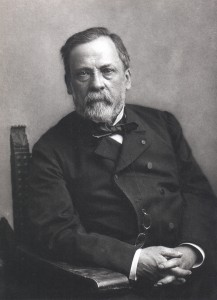Way back in 1895, a French physician by the name of M. Jeanne attempted to persuade his fellow doctors that big changes were coming to the field of medicine. As he wrote in the Concours Médical,
“It may not be too soon to look ahead into the future that the scientific revolution, brought about by the beneficent discoveries of the illustrious Pasteur and his school, has in store for the medical profession. […] Diagnosis, that primordial element of our art, will soon no longer be able to do without the microscope, bacteriological or chemical analysis, cultures, inoculations, in a word everything that may give our clinical judgments absolutely precise data. […] Let us go back to school, and prepare the ground for an evolution, if we are to avoid a revolution.”
We’re using Bruno Latour’s The Pasteurization of France (1984) – the source of the quote – in my graduate seminar, “Emergent Media: Technologies, Networks, Culture” at Rice University. Our focus is on the complex interplay between the emergence of new media technologies in different historical periods (past, present and future), the networks of commerce and creativity that fuel and arise from these innovations, and the cultural productions that result. While much of our reading looks forward at digital interfaces, we can learn a lot about contemporary evolutions and revolutions by looking back – and the bacteriological revolution was about as disruptive as they get. But the key point is that it was a revolution that came from outside of medicine, and it only gained momentum through an accumulation of forces, including professionals and the lay public, who all felt they shared a common goal.
In one hundred years, will we have a Louis Pasteur of digital medicine? Will the eventual embrace of digital tools seem as obvious then as the embrace of bacteriology seems to us now?
Latour argues that physicians in France finally joined the Pasteurians only after the development of the diptheria serum, which required the doctors’ services to diagnose the disease. By devising a serum that treated but did not prevent disease, the Pasteur group allowed doctors to keep their jobs and get on the bacteriology bandwagon without losing face. What will be the magic serum that allows medicine to join the digital revolution? Self-tracking? Personalized genomics? 3-D printing? Whatever it is, history tells us that it will only take over by making itself seem inevitable.

